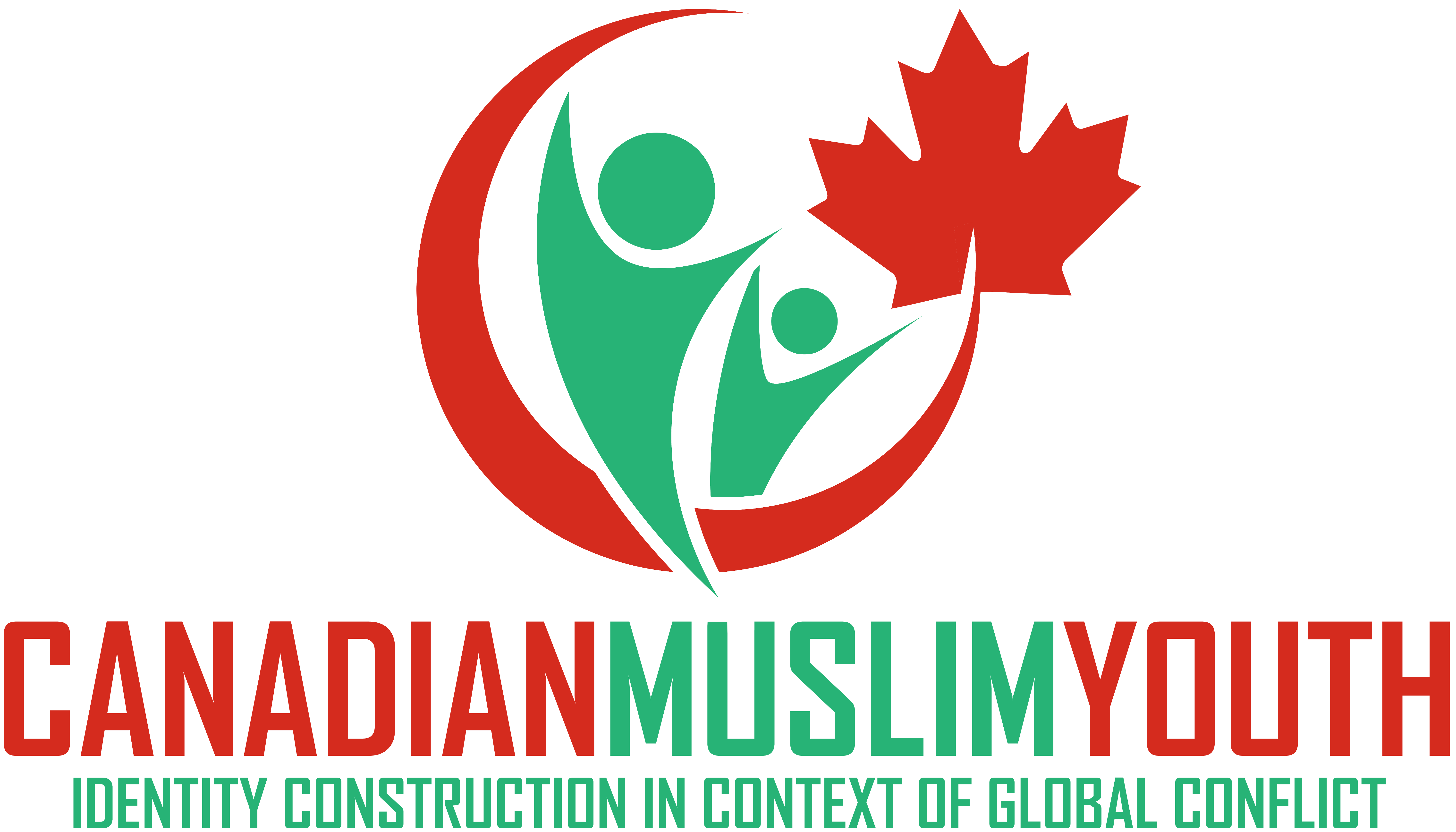Hear directly from the voices of the participants

Connection Building
We value connecting and engaging with a diversity of different groups. Without connecting with researchers across Canada, this research initiative would not be possible.
Why we’re doing this research. Our academic approach
This research project includes goals to better understand Muslim youth and how they create their identities in what are sometimes hostile conditions. The overall goal is to decrease racism and discrimination and to increase understanding and tolerance in Canada. Discrimination and othering can lead to alienation, which is often where extremism is born. The project is based on academic research, by leading international scholar Dr. Aamir Jamal, PhD, University of Calgary, Faculty of Social Work.
Context
There are over one million Muslims in Canada. They are the youngest Canadian population with a median age of 28.9 years. Muslims are a very diverse group, with a variety of ethnicities and languages. The identity development process for immigrant minority, Muslim youth is fraught with many challenges and tensions. Muslims living in the western world are constantly renegotiating their individual and collective identities. Minority and immigrant status affects identity development, especially when the dominant community has opposing cultural and religious values, or there are conflicts with the regions or groups to whom immigrant minorities identify with. Previous studies have shown that a good balance between one’s multiple identities (e.g., national, religious, and ethnic identities) is essential for one’s mental and psychological well-being as well as positive identity development.
This project seeks to understand the wider context of Muslim youth identity construction through an exploration of factors that contribute or hinder the development of a meaningful and stable youth identity in an era of global conflicts and collective surveillance and suspicion. Radicalism and extremism emerge from the fissures within the fluctuating social, political, cultural, and religious contexts of transnational Islam. It is important, therefore, for us to study not only radicalization and extremism but the background from which these emerge. This project explores the construction of identity amongst CM youth, examines multiple theoretical understandings of how identities are negotiated and transformed within larger and conflicting (or contested) religio-political and cultural contexts, and we make recommendations to government, policymakers, Non-Governmental Organizations (NGOs) and the wider Muslim community in Canada. Employing a Delphi method, this study brought together diverse members of the Muslim community and key stakeholders, particularly religious scholars, and community organizers, and enables them to reflect on the process of youth identity formation and develop recommendations for a positive youth development.
Project Objectives
- What are the existing identities of Canadian Muslim youth?
- How do Canadian Muslim youth construct, negotiate and maintain their individual, communal, religious and transnational identities?
- What factors (e.g. gender, religion, education, family background, experiences of discrimination, etc.) impact identity development amongst Canadian Muslim youth?
- What features of the narrative, sense-making environment (the pool of collectively available narratives that individuals draw upon to make sense of their experience) justify or support some young Muslim Canadians’ move to extremism?
- What avenues and strategies of prevention and disengagement do stakeholders (such as Muslim community, religious leaders, political leaders, and Islamic scholars) see as most promising in positive youth development?
Project Plan
Phase 1. Narrative inquiry with Canadian Muslim (CM) Youth
In the first step, in-depth interviews were conducted with Muslim youth living in Calgary, Toronto, and Vancouver. The interviews provided insight into the narrative identity of Canadian Muslim youth and how they understand their lives in their social, political, religious, and cultural narrative environments.
In the second step, focus groups were conducted with CM youth in each location, focused on multiculturalism, culture, global conflicts, gender, religion, and extremism enhancing our understanding of how CM youth negotiate multiple identities and develop a sense of belonging in diverse academic, religious, socio – cultural and political settings. Interviews and focus groups will be audio recorded and transcribed verbatim.
Phase 2. Delphi study with the Muslim Community
We are in this active phase of the project, in which we are focusing on achieving consensus, through the Delphi method. The Delphi method is a structured, anonymous group communication to evaluate multidimensional, complex and sensitive issues in areas of public policy and practice.
Using the Delphi method, this study is seeking the individual and collective insight, opinion, experience of the Muslim community, including religious leaders (Imams), Islamic scholars (Ulema), members and leaders of community organizations, Muslim youth associations, social workers and parents – in finding the deeply rooted religio-political and ideological underpinnings of conflicting identities and their impact on CM youth.
